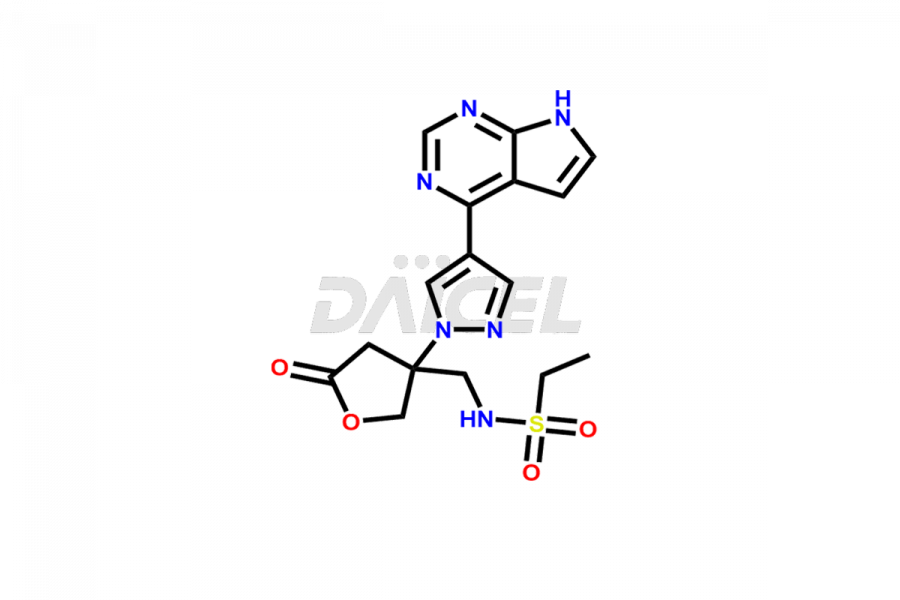Baricitinib
References
- Rodgers, James D.; Shepard, Stacey; Li, Yun-Long; Zhou, Jiacheng; Liu, Pingli; Meloni, David; Xia, Michael, Azetidine and cyclobutane derivatives as JAK inhibitors, Incyte Corporation, United States, US8158616B2, April 17, 2012
- Gandhi, Santosh V.; Kapoor, Barkha G., Development and validation of UV spectroscopic method for estimation of baricitinib, Journal of Drug Delivery and Therapeutics, Volume: 9, Issue: 4Suppl., Pages: 488-491, 2019
Frequently Asked Questions
How are Baricitinib impurities controlled during the manufacturing process of the drug?
Impurities in Baricitinib are controlled during manufacturing by implementing good manufacturing practices (GMP), such as using high-quality raw materials and employing appropriate purification techniques.
Can Baricitinib impurities affect the stability of the drug product?
Yes, impurities in Baricitinib can affect the stability of the drug product, leading to degradation and decreased efficacy.
Are there any specific methods to control impurities in Baricitinib?
Yes, specific methods to control impurities in Baricitinib depend on the type of impurity and its source. For example, controlling process-related impurities involves optimizing synthetic processes and using appropriate purification techniques.
What are the temperature conditions required to store Baricitinib impurities?
Baricitinib impurities are stored at a controlled room temperature between 2-8 °C or as indicated on the Certificate of Analysis (CoA).
Note: Products protected by valid patents by a manufacturer are not offered for sale in countries having patent protection. The sale of such products constitutes a patent infringement, and its liability is at the buyer's risk.

